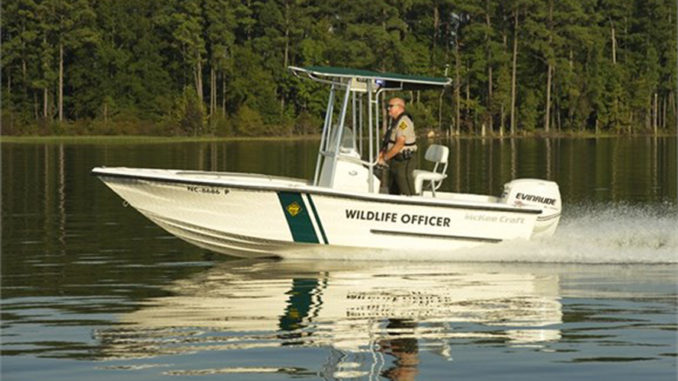
New law allows individuals to deny searches in some cases
Thanks to Rep. Roger West of Marble, officers with the N.C. Wildlife Resources Commission will find enforcing fish-and-game laws more difficult this year.
West (R-Cherokee/Clay/Graham/Macon), who has a history of clashes with the Commission, added a section to some legislation late during last year’s session of the N.C. General Assembly that wound up being passed as part of the 2015 Farm Bill. The section, entitled “Wildlife Search and Seizure Modifications” allows individuals, under certain circumstances, to deny wildlife or marine patrol officers the permission to search coolers or other property to check for possible fish or game violations. In some instances, the law change allows suspects to deny possession of illegally-taken fish or game, which means they couldn’t be charged.
West, 67, who is retiring and will not run for re-election this fall, has clashed with the Commission over a bear-poaching sting operation in western North Carolina and adjoining states that operated between 2009 and 2015. Last fall, he led a successful drive to have the management of pen-raised whitetail deer taken away from the Commission and given to the N.C. Department of Agriculture and Consumer Services.
The changes, which took effect last Dec. 1, will require enforcement officers to have “reasonable suspicion” that an individual has taken fish or game before the individual must submit to a request for a search. Previously, refusing to allow an officer to search a cooler or vehicle could have resulted in a citation.
“Each individual case matters,” said Col. Jon Evans, head of enforcement for the Commission. “Anyone engaging in an activity we regulate still will have to display any item required by law, such as boating safety, other equipment or any license, permit, tax receipt, certificate or identification.
“But now, if someone is fishing on a dock, for example, and if there’s no reasonable belief that person has fish inside a cooler, the officer could ask to look inside and the person could refuse. In the past, that refusal would be unlawful. But if an officer now sees someone fishing, sees blood or fish scales on a cooler, he’d have reasonable suspicion and have authority to inspect, even if a person said no.
“A person could have only Pepsis in the cooler, but his refusal to open after we told him we had reasonable suspicion means we still could issue a citation because the person objected to a lawful request,” he said. “You never can refuse to allow inspection of (fish or) wildlife.”
Enforcement officers may inspect shotguns without the owner’s permission in order to see if the weapons can hold more shot shells than allowed, but they can’t inspect equipment or fish and game without an angler or hunter present — a section apparently added by West to prevent tampering with evidence, a charge made by many of his constituents who were arrested in Operation Something Bruin last year.
Richard B. Hamilton, director of the N.C. Wildlife Federation’s Camo Coalition and former executive director of the Commission, is not happy with the changes.
“This is troublesome for efficient operations of officers on patrol in the field,” he said. “(It) has made the job of a conservation officer more difficult, complicated and exposed him or her to greater risk to the frivolous claim of false arrest. It will most likely lead to great caution while enforcing the law, fewer cases detected and fewer charges made. We don’t need to make law enforcement officers’ jobs more complicated and risky.”
Hamilton said that if officers discover fish and game that’s been illegally taken, or inspect a firearm or vehicle suspected of being used, unless the owner is present and claims possession, no charges can be filed.
According to one legislator, it could have been worse.
Rep. Dennis Riddell (R-Alamance), the co-sponsor of the House bill to which West’s section was attached, said some of West’s proposed restrictions were softened before becoming law.
“They got a lot of attention from Wildlife Resources and hunting groups,” Riddell said. “I spoke with officers. They said the language would impede their ability to carry out practical and needful searches with hunters and of equipment, especially when it wasn’t attended.”




Be the first to comment